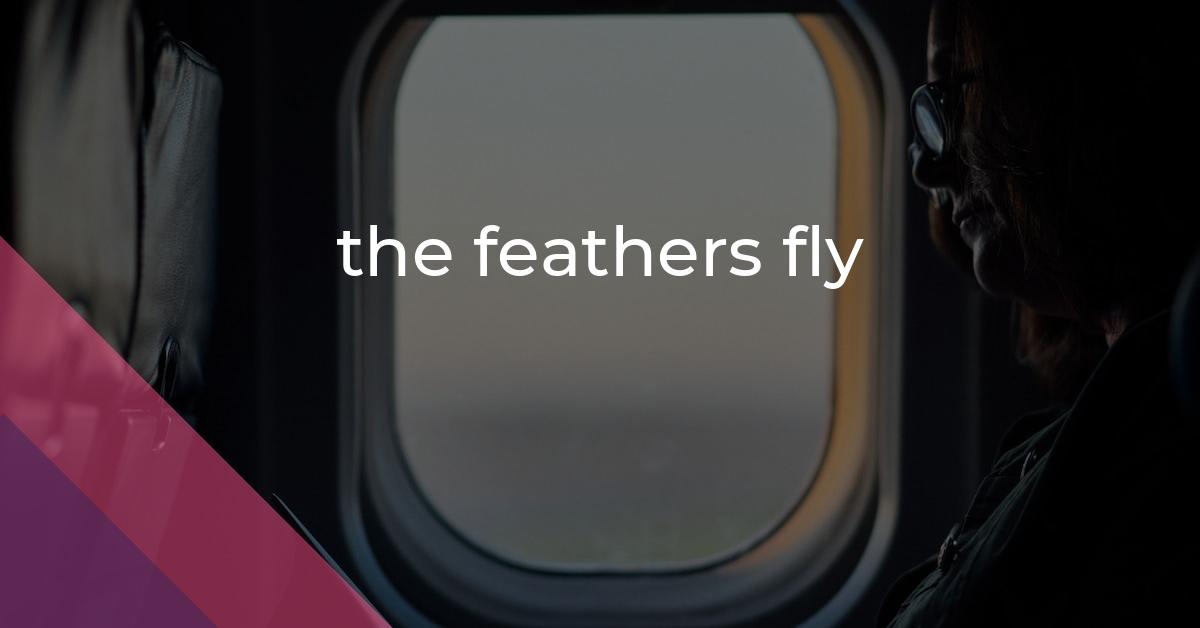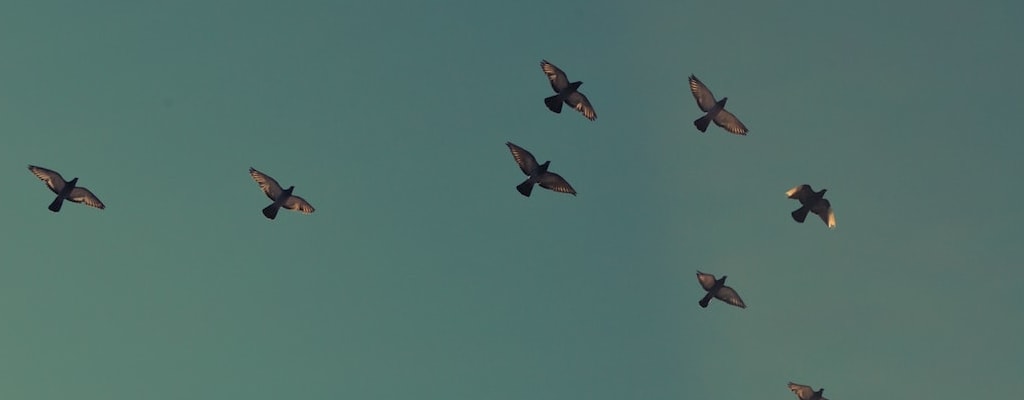the feathers fly: Idiom Meaning and Origin
What does ‘the feathers fly’ mean?
The idiom *the feathers fly* means a situation where there is a lot of noise, conflict, or commotion, usually resulting in a heated argument or fight.

Idiom Explorer
The idiom "the chickens come home to roost" means that negative consequences or troubles from previous actions will eventually catch up to a person.
"Take flight" is an idiom that means to leave or escape from a situation or place rapidly, usually out of fear, danger, or a desire to avoid something unpleasant.
The idiom "take a flyer" means to take a risk or gamble without considering the potential consequences or likelihood of success.
The idiom "stormy weather" refers to a period of difficult and turbulent times or circumstances, often related to emotional or challenging situations.
The idiom "storm off" means to leave a place angrily or abruptly, typically in response to a disagreement or conflict.
The idiom *spread one's wings* means to gain independence or freedom from restrictions, often by exploring new opportunities or trying new experiences.
The idiom "spit nails" means to be extremely angry or furious.
The idiom "spit into the wind" means to do something futile or pointless, as it is ineffective or counterproductive, similar to spitting and having the wind blow it back in your face.
The idiom "spit feathers" means to be extremely angry or frustrated.
Feathers Aflutter
The idiom "the feathers fly" is a commonly used phrase in the English language that conveys a sense of commotion, chaos, or conflict. It symbolizes a disruption or disturbance in an otherwise peaceful state. The origin of this idiom is uncertain, but there are several theories that provide insight into its possible meaning.
One theory suggests that "the feathers fly" may have originated from the practice of cockfighting, where two roosters are pitted against each other in a fight. During these fights, feathers were often scattered as the birds vigorously flapped their wings. The sight of feathers forcefully expelled during these confrontations may have inspired the idiom.
Another theory proposes that the idiom may have derived from a literal event involving feathers. In the late 18th and early 19th centuries, feather beds were commonly used for bedding. During physical activities on these beds, such as jumping or wrestling, the feathers would become dislodged and waft through the air, creating a flurry of feathers. This playful disruption may have influenced the idiom.
Regardless of its exact origins, "the feathers fly" is widely recognized and understood by native English speakers. It is used to depict scenarios of rapid and intense activity or conflict. Whether describing a heated argument or a tumultuous event, this idiom succinctly conveys a sense of disorder and disturbance.
While the idiom itself is straightforward in its meaning, it allows for various interpretations and applications. It serves as a reminder of the ever-changing nature of human interactions and the potential for conflict in even the most mundane situations. The idiom also evokes curiosity, leaving room for speculation on its precise origin and evolution.
There are several related idioms that further emphasize the concept of disruption and chaos. The idiom "spit feathers" is one such phrase. This idiom is used to describe a state of extreme anger or frustration, often resulting in the utterance of harsh or bitter words. When someone is so enraged that they could "spit feathers," it signifies a level of emotional intensity that is difficult to contain.
Another related idiom is "fly the coop." This expression is often used to describe someone who is leaving a place or situation abruptly, often to escape a difficult or unpleasant circumstance. It conveys a sense of liberation and freedom, as if the person is breaking free from the constraints that were holding them back. When someone decides to "fly the coop," they are taking a bold step towards a new beginning.
When someone's feathers are "ruffled," it means that they have been upset or offended by something. This idiom suggests a sense of irritation or annoyance, as if someone has disrupted the peace or harmony in a situation. When someone's feathers are "ruffled," it is an indication that they may be on the verge of conflict or confrontation.
The idiom "take flight" is another phrase that relates to the concept of the feathers flying. It is often used to describe a sudden and rapid departure or escape. When someone or something takes flight, it implies a sense of urgency or necessity in getting away from a particular situation. Whether it's a bird soaring into the sky or a person fleeing from danger, "taking flight" indicates a swift and decisive action.
The idiom "the feathers fly" encapsulates the essence of disruption and chaos. Its origin may be uncertain, but its usage and recognition remain prevalent in the English language. This idiom serves as a testament to the richness and versatility of idiomatic expressions, providing a vivid and evocative means of communication for English speakers.
Example usage
Examples of how the idiom "the feathers fly" can be used in a sentence are:
- During the heated argument, the feathers flew as both parties expressed their anger.
- In the competitive world of politics, when two candidates clash, you can expect to see the feathers fly.
- When the two rival gangs encountered each other, a fight broke out and the feathers really started to fly.
More "Conflict" idioms



